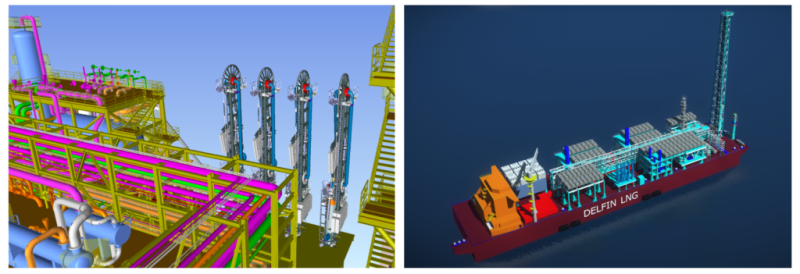Delfin LNG expects to make a final investment decision (FID) on its flagship floating liquified natural gas (LNG) export project in the US Gulf of Mexico (GOM) sometime in 2022. The project, centered on a deepwater port, is one of many LNG export facilities that had its decision to start construction pushed by the pandemic and customers’ hesitance to ink long-term deals needed to help finance the facilities.
“This is the best macro environment that the LNG business has ever seen," Delfin Chief Executive Dudley Poston told Reuters this week, noting he was "very confident" the company would make the FID this year. “We're now seeing the most sustainable interest from LNG buyers ... that we've seen in years, and Delfin only needs two to three buyers. We’re already in contractual discussions for more than we need for the first vessel. We just need to get a couple of those guys across the line.”
Delfin LNG is a brownfield deepwater port requiring minimal additional infrastructure investment to support up to four floating LNG vessels handling up to 13 mtpa of LNG, or 3.5 mtpa per vessel. Delfin purchased the 42-in.-diameter UTOS pipeline, the largest-natural-gas pipeline in the Gulf of Mexico, in 2014 and submitted its deepwater port license application in 2015. Delfin LNG received a positive record of decision from the US Maritime Administration (MARAD) and approval from the Department of Energy for long-term exports of LNG to countries that do not have a free-trade agreement with the United States for up to 13 mtpa.
Poston said each vessel would cost about $2 billion, with the first expected to enter service around 2026, 4 years after the FID. Front-end engineering and design work on the initial vessel was completed by Samsung and Black & Veatch.
After the first FID, Poston said Delfin would start working on its Avocet project, which would add two more liquefaction vessels of up to 8 mtpa capacity in total. Avocet would be a second deepwater port hooked into the Grand Chenier pipeline system offshore Louisiana.
Delfin said it believes Avocet LNG’s MARAD permitting process will be significantly cheaper and more efficient because the company can leverage the Delfin LNG’s successful permitting work.


